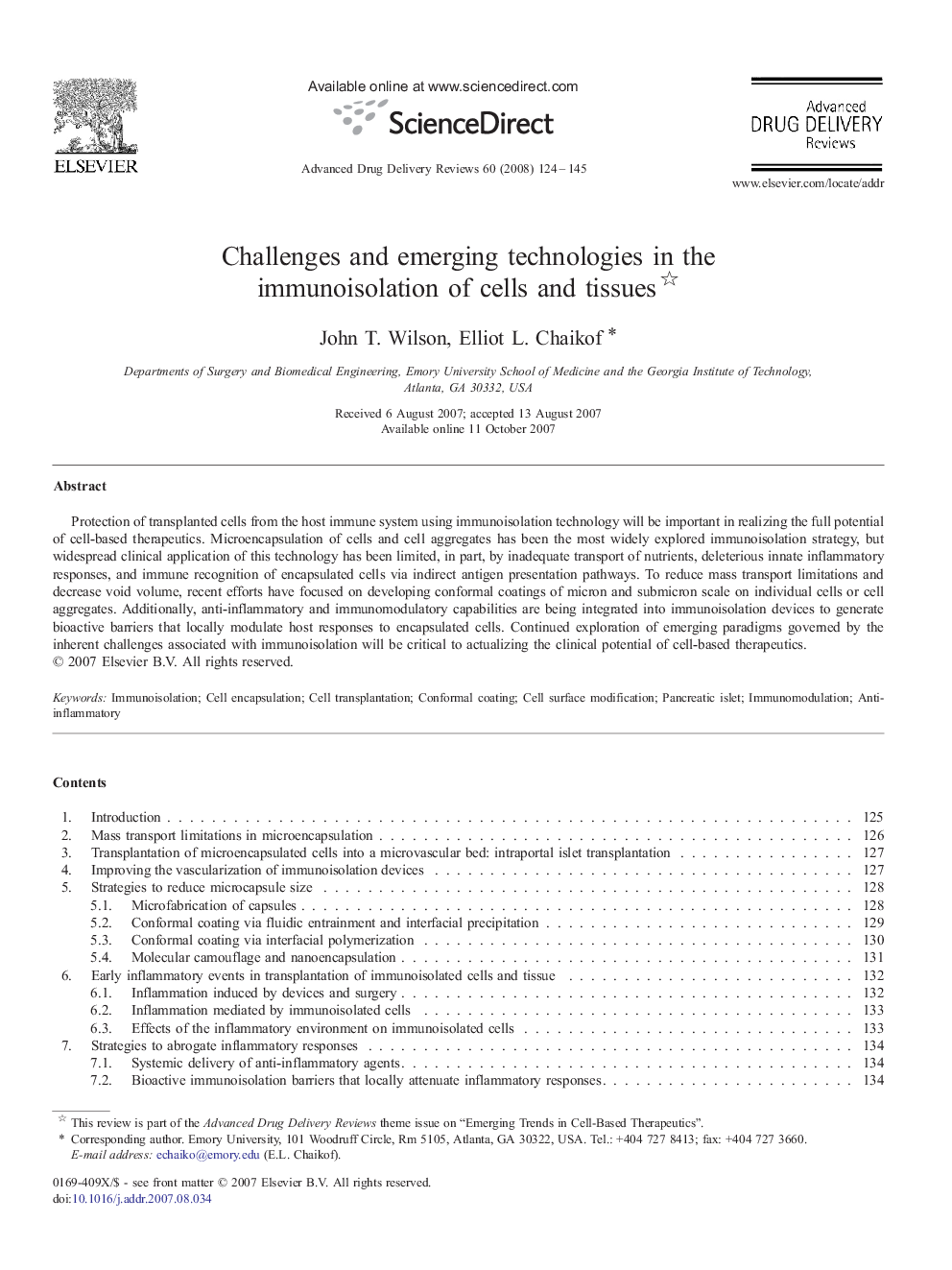| Article ID | Journal | Published Year | Pages | File Type |
|---|---|---|---|---|
| 2071712 | Advanced Drug Delivery Reviews | 2008 | 22 Pages |
Protection of transplanted cells from the host immune system using immunoisolation technology will be important in realizing the full potential of cell-based therapeutics. Microencapsulation of cells and cell aggregates has been the most widely explored immunoisolation strategy, but widespread clinical application of this technology has been limited, in part, by inadequate transport of nutrients, deleterious innate inflammatory responses, and immune recognition of encapsulated cells via indirect antigen presentation pathways. To reduce mass transport limitations and decrease void volume, recent efforts have focused on developing conformal coatings of micron and submicron scale on individual cells or cell aggregates. Additionally, anti-inflammatory and immunomodulatory capabilities are being integrated into immunoisolation devices to generate bioactive barriers that locally modulate host responses to encapsulated cells. Continued exploration of emerging paradigms governed by the inherent challenges associated with immunoisolation will be critical to actualizing the clinical potential of cell-based therapeutics.
